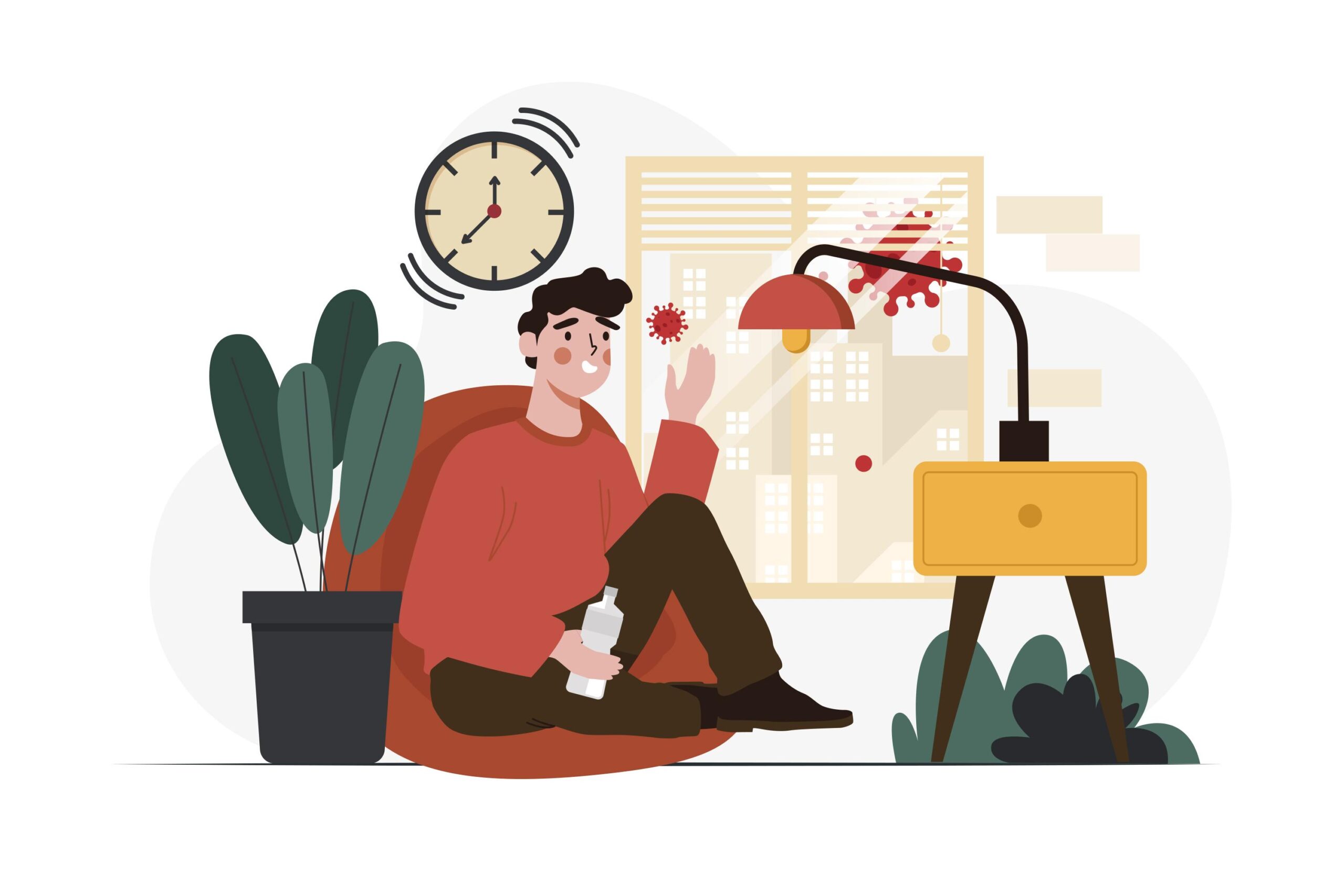We can see the exhausted person in a mile. They’re hunched, calm, and trying to make a smile. Their energy and vitality have gone. They’ve lost interest in their lives. Perhaps you’ve been there, too. Are you experiencing a lack of interest in your daily life? Bored of the routine everyday life. You’re bored with monotony and bored by the daily routine.
In this post, I’ll go over some elements that could cause you to be in this feeble and barren space. I’ll also outline precisely what you can do about it to get back to the world filled with inspiration and a re-energized self.
You feel like losing curiosity in anything because you’re not connected with the spark inside you that fires your fire up, which is what you are looking for – your purpose.
It doesn’t matter if you’ve lost your interest due to circumstances beyond your control, or a race of intense pressure and pain, or perhaps you’re getting frustrated by the challenges of your life, or you’ve given up and accepted a situation that is lower than what you would consider being your regular.
You might be thinking about how this could have taken place. What caused it?
What makes you experience a lack of Interest


Lack of Interest is among the leading indicators of depression. Alongside depression, the lack of Interest could be caused by the following:
- Are you suffering from depression of a major nature (also known as clinical depression)?
- Are you suffering from another type of depression, like premenstrual dysphoria, a form of depression?
- Do you suffer from a substance-use problem, including alcohol abuse?
- Are you experiencing a mood change affecting your desire to do specific things?
- An anxiety disorder can make certain activities more difficult.
- Are you suffering from Parkinson’s disease? Or persistent suffering from pain (part of somatic symptom disorder).
- It is important to remember that a loss of Interest is not always related to a mental illness. It can result from stress or relationship issues, tedious activities, or an uninteresting rut.
It can lead to a downward spiral that isn’t easy to break out of. In the wake of decreased motivation, you may not be engaging with friends and participating in activities that generally make you feel less anxious. The increased loneliness decreases physical activity, and diminished social connections can make you more stressed and depressed.
Methods to Avoid Lack of Interest
If you’re finding yourself less engaged in life, it’s crucial to act and seek help if required.
Loss of interest in your family and friends does not have to last forever. With the right mix of adjustments to your routine and lifestyle, as well as therapy and medications, you’ll be able to put your emotions behind you and live an enjoyable, fulfilling life for the first time in a while.
Check out the methods below to recover your enthusiasm and bring joy back to your everyday life.
1. Contact a licensed Mental Health Professional.


If you’re bored, one of the most beneficial things that could be done is to talk to an expert in mental health.
You can ask your physician to refer you to a mental health professional and schedule an appointment with a counsellor or psychologist within your neighborhood or at your home, using our treatment for depression service.
A sudden, pronounced lack of interest in your life can signify that you’re dealing with mental health issues like anxiety or depression. A visit to a mental health professional will help determine why you’re feeling this way and if you have a particular mental disorder.
If you need help, your Counsellor might suggest taking medications or participating in talk therapy or psychotherapy. They might also suggest modifications to your lifestyle to reduce the impact your thoughts can have on your quality of life.
2. If appropriate, use medication for Relief.


If your lack of interest in your life is due to depression, It is essential to adhere to your doctor’s guidelines and, when required, take medications.
The use of antidepressants, for instance, can reduce the severity of depression symptoms such as anhedonia. It is especially beneficial in cases of severe depression that aren’t getting better by themselves.
Different types of medications are employed to treat depression, for example, selective serotonin receptor inhibitors (SSRIs). These antidepressants operate by increasing the activity of serotonin in the brain. It’s a chemical found in nature that’s involved in controlling your mood and emotions.
Sometimes, your doctor may recommend another kind of antidepressant for your decreased interest or other signs, like the monoamine oxidase inhibitor (MAOI) or tricyclic antidepressant (TCA).
Alopecia-related medications are very effective, but they may take several weeks to work. You can notice that your sleep, mood, and other symptoms will gradually improve when you begin treatment with this medication.
Our comprehensive collection of antidepressants will provide more details on how these medications are effective, as well as the outcomes you’re expected to experience when given one to treat a decline in interest in life due to depression.
3. Take a look at taking part in psychotherapy.


Talk therapy, also known as psychotherapy, involves speaking with an accredited mental health professional to pinpoint negative thoughts, feelings, and behaviors and discover new strategies to handle them successfully.
The use of talk therapy is typically for treating anxiety, depression, or other psychological health issues; however, it’s also very effective in decreasing anxiety and resolving interpersonal problems.
Many different types of talk therapy are utilized to treat anhedonia, as well as other signs of depression which includes CBT, also known as cognitive behavioral therapy CBT, also known as cognitive-behavioral therapy. It is about identifying negative thoughts and transforming self-defeating beliefs and behaviors.
4. Keep a Healthy, active diet and lifestyle.


Exercising might be the most distant thing on your list if you’re not interested in leaving the house. Research suggests exercise can help lift your mood and help you get back to normal.
For instance, scientists have discovered that exercise triggers the production of the hormone endorphins chemicals that enhance your mood. Regular physical exercise is connected to an increase in the production of certain proteins known as neurotrophic factors, which improve the functioning of your brain.
These changes can reduce the severity of certain depression-related symptoms, such as the lack of interest in your regular routines and hobbies.
Additional research has revealed that the lack of pleasure is closely linked to the intensity of physical activities (meaning those who exercise regularly were least likely to experience a loss of interest in everyday life).
The positive side is that even little amounts of exercise could positively influence your mental and physical well-being.
5. Create a list of things you’d love to do


When you’re dissatisfied, sad, and depressed, it’s simple to forget about the future.
One method to get out of the negative mood and get back your enthusiasm for life is to develop plans for the next couple of weeks, months, or years and then begin doing what you’d like to accomplish.
Your plans could include professional goals such as being promoted or achieving the highest income. It could also contain places you’d like to visit, events you’d like to participate in, or qualifications you’d like to attain.
Small and easy things like reconnecting with old friends, or getting more together with loved ones, could be important objectives when planning for the future.
This kind of strategy for managing stress is often referred to as proactive managing and can serve as a powerful method for personal growth. Set five to 10 personal and large and small goals, and use them as a source of inspiration to move forward and revive your enthusiasm for your life.
A Word from The Mind Mentor
Everybody experiences a certain level of boredom from time to time. Sometimes, it’s due to feeling disinterested. In other instances, it could mean a lack of interest in one of your previous hobbies, and you are looking to discover new interests.
However, this can indicate that you have a mental issue like depression. If you feel that a lack of enthusiasm makes it hard to deal with or affects your daily life, you must consult a physician or mental health specialist about how you’re experiencing it.
Depression can worsen as time passes. The earlier you seek help, the quicker you’ll feel better and will be able to restore your enthusiasm for things that make you happy.
Final Thoughts
In the end, we see a decline in passion for life because we’ve become comfortable. It’s a lie. In the same way, you experience this negative feeling if you’ve worked too much without pleasure or haven’t prioritized the right amount of sleep.
We’re looking to work at the intersection of challenging yet doable tasks. Humans are wired. We enjoy challenges that require us to use our brains.
It is where we feel at ease, are most efficient in learning and development, and feel alive.
You can decide what thoughts go through your head. Whatever your mind is thinking is essential to feed it properly.
Interested Reads:
